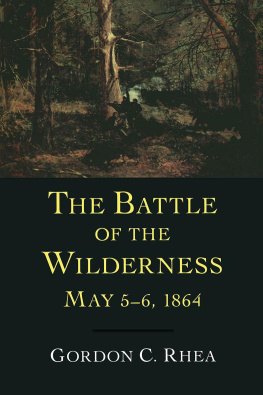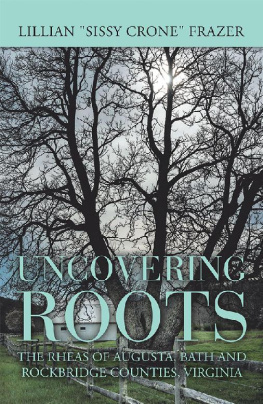Gordon C. Rhea - On to Petersburg
Here you can read online Gordon C. Rhea - On to Petersburg full text of the book (entire story) in english for free. Download pdf and epub, get meaning, cover and reviews about this ebook. year: 2017, publisher: LSU Press, genre: History. Description of the work, (preface) as well as reviews are available. Best literature library LitArk.com created for fans of good reading and offers a wide selection of genres:
Romance novel
Science fiction
Adventure
Detective
Science
History
Home and family
Prose
Art
Politics
Computer
Non-fiction
Religion
Business
Children
Humor
Choose a favorite category and find really read worthwhile books. Enjoy immersion in the world of imagination, feel the emotions of the characters or learn something new for yourself, make an fascinating discovery.

- Book:On to Petersburg
- Author:
- Publisher:LSU Press
- Genre:
- Year:2017
- Rating:3 / 5
- Favourites:Add to favourites
- Your mark:
- 60
- 1
- 2
- 3
- 4
- 5
On to Petersburg: summary, description and annotation
We offer to read an annotation, description, summary or preface (depends on what the author of the book "On to Petersburg" wrote himself). If you haven't found the necessary information about the book — write in the comments, we will try to find it.
On to Petersburg — read online for free the complete book (whole text) full work
Below is the text of the book, divided by pages. System saving the place of the last page read, allows you to conveniently read the book "On to Petersburg" online for free, without having to search again every time where you left off. Put a bookmark, and you can go to the page where you finished reading at any time.
Font size:
Interval:
Bookmark:
ON TO PETERSBURG
Grant and Lee
JUNE 415, 1864

Gordon C. Rhea

LOUISIANA STATE UNIVERSITY PRESS
Baton Rouge
Published with the assistance of the V. Ray Cardozier Fund
Published by Louisiana State University Press
Copyright 2017 by Louisiana State University Press
All rights reserved
Manufactured in the United States of America
First printing
Typefaces: Cochin, display; Times Roman, text
Printer and binder: McNaughton & Gunn
Library of Congress Cataloging-in-Publication Data
Names: Rhea, Gordon C., author.
Title: On to Petersburg : Grant and Lee, June 415, 1864 / Gordon C. Rhea.
Description: Baton Rouge : Louisiana State University Press, 2017. | Includes bibliographical references and index.
Identifiers: LCCN 2017009682 | ISBN 978-0-8071-6747-2 (cloth : alk. paper) | ISBN 978-0-8071-6748-9 (pdf) | ISBN 978-0-8071-6749-6 (epub)
Subjects: LCSH: Overland Campaign, Va., 1864. | Grant, Ulysses S. (Ulysses Simpson), 18221885Military leadership. | Lee, Robert E. (Robert Edward), 18071870Military leadership.
Classification: LCC E476.52 .R477 2017 | DDC 975.5/03dc23
LC record available at https://lccn.loc.gov/2017009682
The paper in this book meets the guidelines for permanence and durability of the Committee on Production Guidelines for Book Longevity of the Council on Library Resources. 
MORE THAN A CENTURY and a half has elapsed since the Army of the Potomac crossed the James River and the Union 18th Corps pressed toward Petersburg, aiming to sever the Army of Northern Virginias main supply line. The six weeks of combat preceding this movement represents the most intense continuous bout of warfare the continent has ever witnessed. Each sides premier generalUlysses S. Grant and Robert E. Leematched wits and endurance in a campaign of combat and maneuver from the Rapidan River to the James. Packed into those six horrific weeks were the Battles of the Wilderness, Spotsylvania Court House, the North Anna River, and Cold Harbor.
This book is the fifth and final volume in my series describing the contest of combat and maneuver between Grant and Lee that has come to be called the Overland Campaign. It begins with the aftermath of the bloody June 3 assault at Cold Harbor and follows the armies as Grant swings south toward Petersburg, aiming to cut Lees supply lines and compel the Virginian to abandon his impregnable Cold Harbor defenses. Detailed are the final days at Cold Harbor, the Union armys movement to the James River, Lees response, and the initial assault on Petersburg.
The popular name for Grants offensive against Leethe Overland Campaignreflects a common misunderstanding of its objective. In 1862 Major General George B. McClellan attempted to capture the Confederate capital by transporting his army by ships to the gates of Richmond. Grants 1864 offensive advanced across some sixty miles of Virginia countryside, passing near where McClellan had marched two years earlier. Critics have faulted Grant for incurring massive casualties to gain a position that McClellan had achieved with virtually no losses. This facile analysis, however, ignores that the two Union commanders had very different objectives. While McClellan was intent upon capturing Richmond, Grants primary goal was not the capture of that city, but the destruction of Lees army.
Historians generally treat the stalemate at Cold Harbor as ending the Overland Campaign. I take a contrary view and consider the initial assault on Petersburg on June 15, 1864, as the its last act and the Petersburg Campaigns opening salvo. Grants withdrawal from Cold Harbor and his initial attempt to take the Cockade City was conceptually a continuation of his mobile operations to destroy Lees army that had started with the crossing of the Rapidan more than a month before. June 15 terminated that campaign of maneuver; afterward the contending armies remained gridlocked in front of Petersburg for almost ten excruciating months.
The richness of Union sources and the comparative paucity of Confederate material unavoidably leads to an imbalance in telling the Overland Campaigns story. We simply know more about events in Grants ranks than we do about those in Lees. If I linger in Union camps more than in the Confederate, it is not because I consider one side more important or interesting than the other, but because I am led to do so by disparities in the availability of historical records.
I am indebted to a host of historians and archivists who helped me research and document the military operations discussed in this book. Two historians were especially helpful in reconstructing events during the armies last days at Cold Harbor. Robert E. L. Krick of the Richmond National Battlefield Park walked much of the ground with me and introduced me to resources that I otherwise might have overlooked. Patrick S. Brady of Seattle, who has been researching and writing about Cold Harbor for these past several years, graciously shared his manuscript and guided me to numerous valuable sources. I am profoundly grateful for their assistance.
The executive director of Pamplin Historical Park, A. Wilson Greene, is the leading historian of the Petersburg Campaign. He has recently completed the first book of a multivolume study that when finished will stand as the authoritative word on the campaign. Mr. Greene not only shared with me his initial chapters dealing with the events preceding and including the battle on June 15 but also reviewed my chapters about the movement on Petersburg, saving me from several potentially embarrassing errors. I and the rest of the community of Civil War historians eagerly await the publication of Greenes series. I also thank Julia Steele, chief of resource management at Petersburg National Battlefield Park, as well as the rest of the park-service staff at the Petersburg facility.
Researcher and author Bryce A. Suderow expended prodigious efforts on my behalf researching Civil Warera newspapers and periodicals, locating reams of pertinent documents and letters, and patiently reviewing my manuscript. Mr. Suderow is a serious student of the Petersburg Campaign whose opinions I value highly, although I do not always agree with them. While he holds a more negative opinion of Grants generalship, I enjoy our discussions and have learned much from them. I am similarly indebted to Joseph A. Rose, whose Grant under Fire contains a scathing criticism of the generals military acumen. Mr. Rose sent me material and critiqued some of my chapters. While we do not see eye-to-eye about Grant, his observations have challenged me to reexamine my own ideas. My current assessment of the Union general in chief appears in the epilogue and will, I trust, generate additional discussion of this fascinating topic.
Numerous historians, collectors, and archivists across the country have sent me material and reviewed portions of my evolving manuscript. Among them is Bobby Mueller, whose knowledge about the neglected portion of the Cold Harbor battlefield around Matadequin Creek assisted me in understanding the confused combat that occurred there. I also extend thanks to Alfred C. Young, whose recent Lees Army during the Overland Campaign is the best modern attempt to calculate Confederate casualties. Mr. Young generously shared his data with me and estimated losses at my request for some engagements not discussed in his book.
Next pageFont size:
Interval:
Bookmark:
Similar books «On to Petersburg»
Look at similar books to On to Petersburg. We have selected literature similar in name and meaning in the hope of providing readers with more options to find new, interesting, not yet read works.
Discussion, reviews of the book On to Petersburg and just readers' own opinions. Leave your comments, write what you think about the work, its meaning or the main characters. Specify what exactly you liked and what you didn't like, and why you think so.






